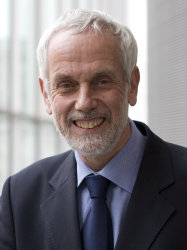BibTex format
@article{Rockstrom:2014:10.1002/2014EF000280,
author = {Rockstrom, J and Brasseur, G and Hoskins, B and Lucht, W and Schellnhuber, J and Kabat, P and Nakicenovic, N and Gong, P and Schlosser, P and Costa, MM and Humble, A and Eyre, N and Gleick, P and James, R and Lucena, A and Masera, O and Moench, M and Schaeffer, R and Seitzinger, S and van, der Leeuw S and Ward, B and Stern, N and Hurrell, J and Srivastava, L and Morgan, J and Nobre, C and Sokona, Y and Cremades, R and Roth, E and Liverman, D and Arnott, J},
doi = {10.1002/2014EF000280},
journal = {Earth's Future},
pages = {606--611},
title = {Climate change: The necessary, the possible and the desirable Earth League climate statement on the implications for climate policy from the 5th IPCC Assessment},
url = {http://dx.doi.org/10.1002/2014EF000280},
volume = {2},
year = {2014}
}

